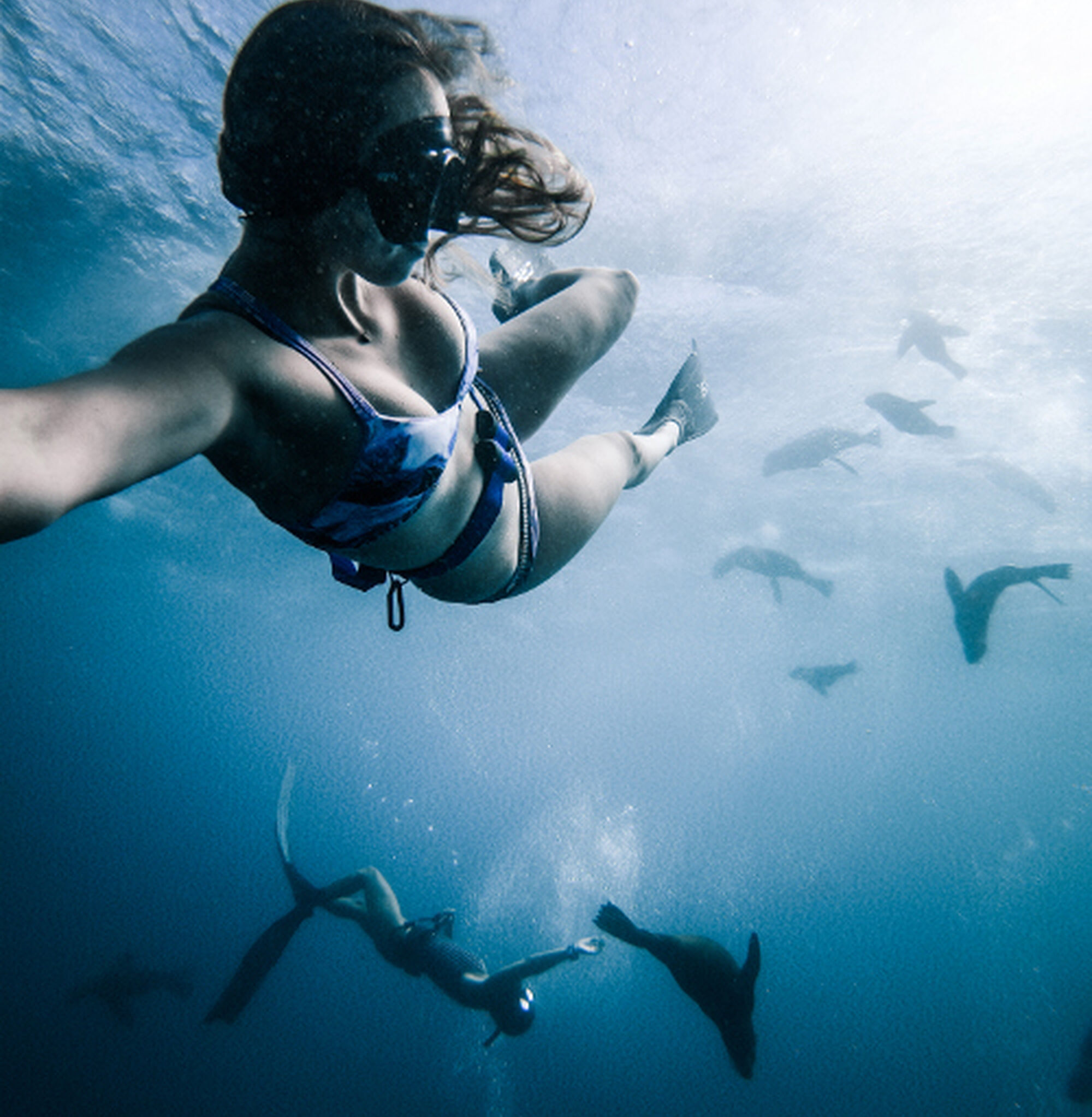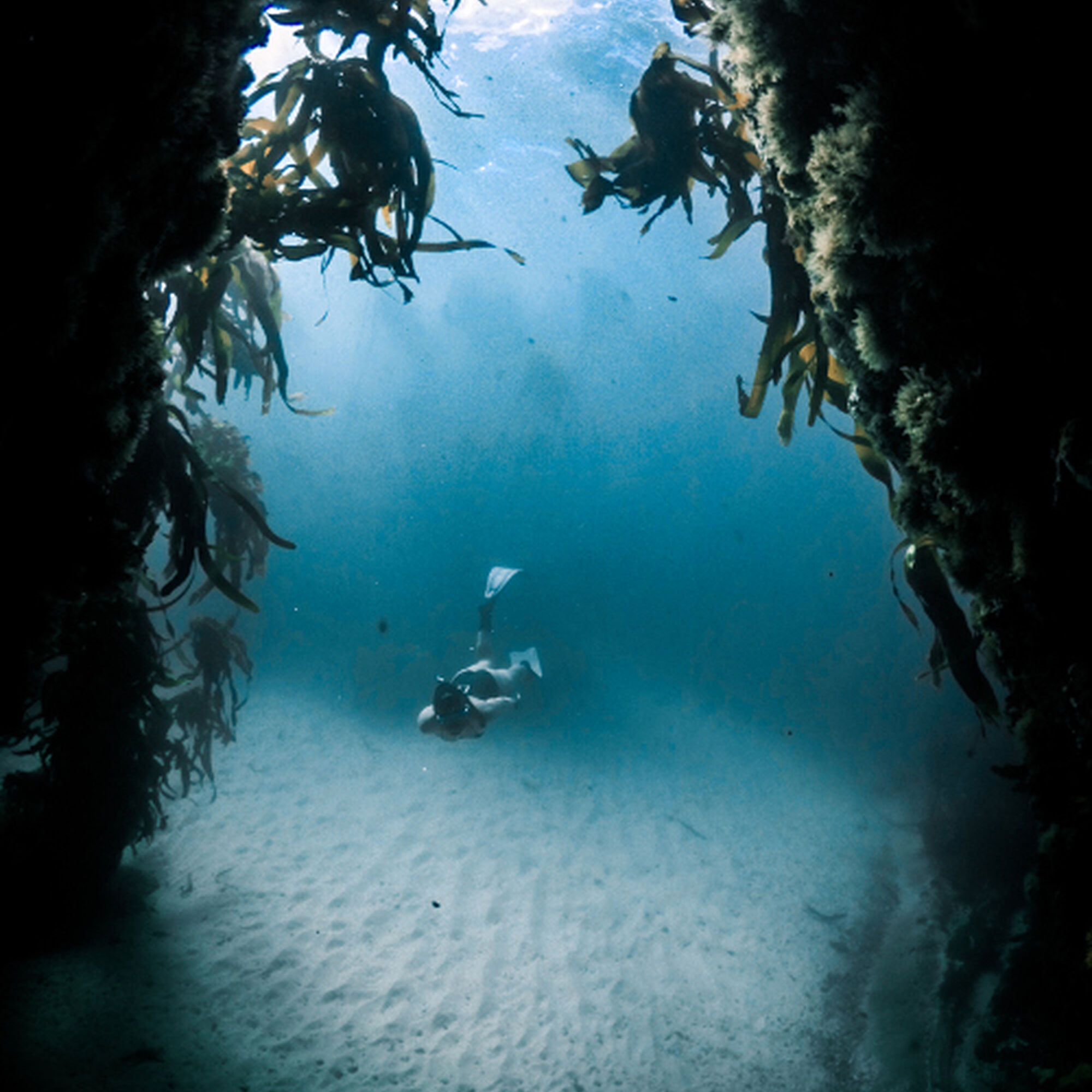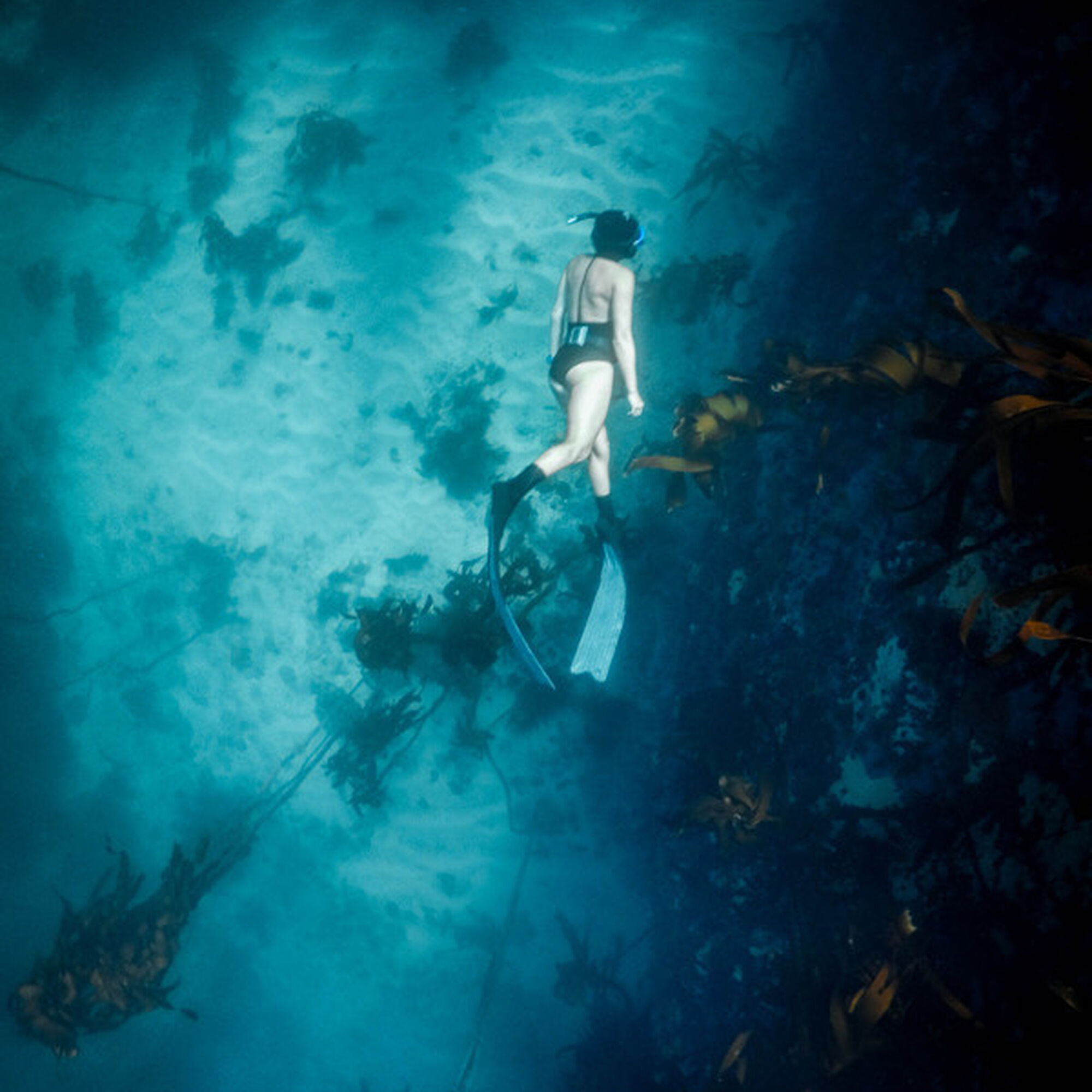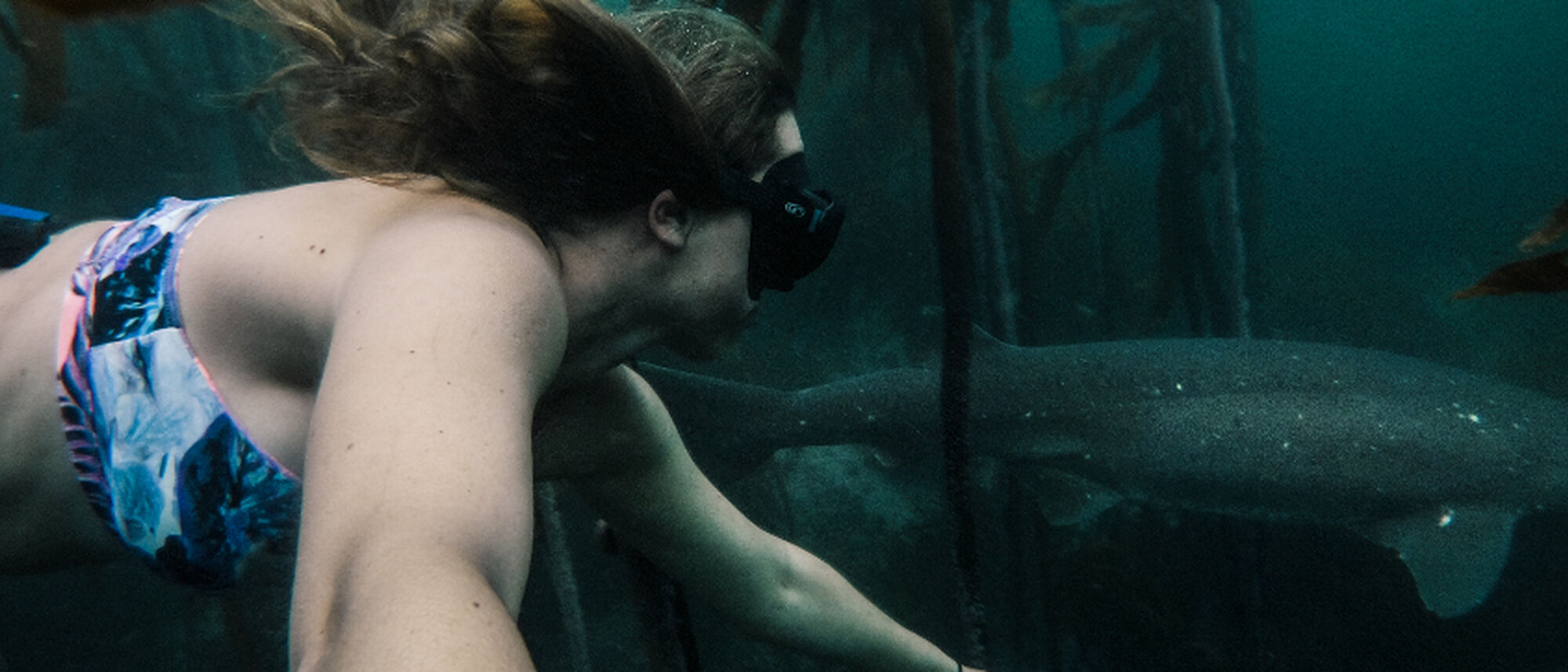[DiscoverCTWC]: You in a nutshell. Who you are, what you do and where you come from.
[Faine]: I am a 21-year-old cold water free-diver, filmmaker and inspired-naturalist living in Cape Town. I was born in Paarl and lived on a couple of farms for the first five years of my life, before moving to the Mother City. So I do consider myself a “Capetonian”.
Where did your journey as a filmmaker begin?
As I child I was always interested in photography, and was privileged enough to have parents who could support this interest. When I was 16, my parents gave me a GoPro Hero 3 camera, and I was totally ecstatic. It allowed me to combine my love for the ocean and photography in a comparatively cheaper way (considering the prices of underwater housings for example). Because the GoPro had a video function, it opened up a totally new and exciting world for me in which I could combine moving images with audio and storytelling. But it was only after I’d watched a documentary film titled “Into the Dragons Lair”, in which filmmakers venture into the papyrus reed lairs inhabited by the African crocodiles, that I really considered filmmaking as a career.
I recently completed my degree at the University of Cape Town majoring in film production and currently have my final student film traveling around the world with the Ocean Film Festival. The documentary film is called ‘Scarlet’s Tale’ and tells the story of a bond between Achmat Hassiem and Scarlet, the 4.6 meter great white shark that took his leg.
You have a clear affinity with the ocean – where did this start, how did you first get into free-diving?
My love for the ocean really came from my parents. I have vivid memories of swimming in crystal clear rock pools filled with psychedelic coloured sea-urchins, solitary camping trips up the West Coast, and snorkelling excursions along the Cape Peninsula. However, I only really got into free-diving through my dad’s best friend, Craig Foster. Craig, for the past eight years, has made a commitment to dive in Cape Town’s waters every single day (without a wetsuit). Through this, he has pioneered a form of underwater tracking, inspired by his time spent with the San people in the Kalahari, that has allowed him to discover five new species and over 40 undocumented behaviours. This passion for understanding the natural world was something that really inspired me to get into free-diving and to undertake a similar challenge.
Cape Town and the Western Cape is famous for its coast, do you have any favourite spots to dive?
This totally depends on the season. During summer, the south-easter drives surface water away from the western side of the peninsula creating an upwelling that brings deep, cold and clear water, ideal for diving. I love Justin’s Caves, Oudekraal and an offshore rock inhabited by playful cape fur seals. As soon as the north-west makes its presence known around autumn, False Bay becomes the ideal spot. Generally speaking I love any marine protected area as the abundance of life is just incredible. They offer a glimpse into a time pre-overfishing, where vulnerable ecosystems thrive.
Your work with the Sea Change Project is obviously something that you are passionate about. How did you come to get involved with the project and can you give me a brief overview of the work being done?
This takes me back to Craig. Craig along with Ross Frylinck (the founder of Wavescape Film Festival) co-founded The Sea-Change Trust, a non-profit to help promote and protect their love of the kelp forest environment. As my own passion and interest in the kelp forest grew, along with my passion for storytelling, I was absorbed into the project.
Sea-Change Project is essentially a group of storytellers and scientists trying to inspire a reconnection to nature through deep immersion in the wild, and thus effect lasting behavioural changes that will protect our environment. At the same time, we are also attempting to raise the status of the kelp forest to the likes of the Great Barrier Reef, Amazon Rainforest or Serengeti and create more marine protected areas. We are adding our voices and actions to the global 30x30 campaign, to protect 30% of the ocean by 2030.
Currently, a hardcover book titled Sea-Change: Primal Joy and the Art of Underwater Tracking written by Ross and Craig is being printed and will be available in leading book stores around the beginning of October 2018. A feature length documentary co-directed by Pippa Ehrlich and Craig on the incredible relationship shared between Craig and a common octopus is currently in post-production.
What is your role with the Sea Change Project?
I currently run all aspects of Sea-Change’s social media, and work with Ross and Sea-Change trustee, Carina Frankal, on developing the Sea-Change Project exhibition and outreach. I also work closely with Carina to grow the Sea-Change Trust’s strategic and financial partners.
Who are you influenced by?
In all honesty, the Sea-Change Tribe (as we call ourselves) is probably my biggest influence. Each member adds a unique perspective and wealth of knowledge. Alongside this, we are fortunate to work with some of the leading minds in the world, from philosophers to scientists, conservationists, filmmakers, politicians and journalists. I have been particularly inspired by Louis Herman, a philosopher from Hawaii (although he was originally born in South Africa) and his book Future Primal: How our Wilderness Origins Show us the Way Forward
Discoverers never cease to seek out the inspiring, they are hungry for new experiences and leave no stone unturned. What makes you a “Discoverer”?
I suppose my curiosity is something that makes me a discoverer, whether it means walking a bit further to see what’s around a corner, enduring cold water a bit longer to watch how a certain animal behaves, literally leaving no stone unturned to figure out what marine life lives below, and also exploring not just the outside, physical world, but attempting to understand my own inner world – consciousness.
Finally, what is your hope for the future?
My hope is for a total shift in human behaviour with regards to our environment. We are not separate to nature – believing we are, has been one of the most damaging beliefs to not just the environment, but to our own psyche. Science has shown that people protect what they love, so my hope is that by reconnecting people to nature, a desire will follow to conserve it.
For more information on the Sea-Change Project: http://seachangeproject.com / @seachangeproject / Buy the book
Follow Faine:@fainepearl




















